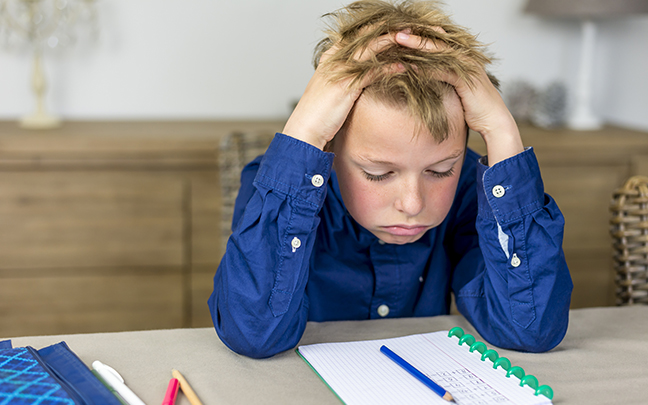1. Get Organized
Help your child get used to the new routine, including wake-up time, after-school arrangements and bedtime. The night before school, pack lunches and backpacks; also have clothes chosen and ready to wear. When kids know where everything is and when things will happen, they have less to fret about.
2. Encourage Sleep
Set a regular bedtime and stick to it. Getting enough sleep helps to balance mood, reduce stress and decrease whining! One way to help kids fall asleep faster is to keep electronics out of bedrooms. Aim for unplugging at least two hours before bedtime.
3. Schedule Downtime
Kids need time for their bodies and minds to rejuvenate. If you are routinely eating meals in the car while running from one activity to the next, you probably have too much going on. Ask your child which activities they enjoy most, and then scale back. The start of a new school year is the perfect time to plan for a less hectic activity schedule.
4. Breathe!
Teach your children the importance of deep breathing when they start to feel stressed. Talk about how we all feel overwhelmed sometimes and that’s okay, as long as we know what to do. Try “Balloon Breathing” with them. Start standing and raise arms into a balloon shape while inhaling (four counts), hold (four counts), exhale (four counts), and let your whole body go limp like a deflated balloon.
5. Exercise
One of the best stress relievers is exercise, and kids need more than just recess and PE class. Children need at least 60 minutes of physical activity each day. Make it fun! Some great ways to get active with your kids are walking them to and from school, riding bikes or shooting hoops in the driveway. Any time you can spend with your children reassures them you are there for them with unconditional love, and that is the most important stress reliever you can give.
6. Watch for Red Flags
Nearly 10 percent of children will have a diagnosis of generalized anxiety disorder or major depression at some point in their lives, according to the Centers for Disease Control and Prevention. Warning signs that your child’s stress may be more than just typical childhood pressures include:
- Headaches and stomachaches
- Sleep disturbances/nightmares
- Quick to anger or cry for no apparent reason
- Nervous habits like nail biting or hair pulling
- Withdrawal from friends or favorite activities
If you notice these red flags, seek help. The sooner your child is treated, the better her body’s response will be.
To contact a family medicine physician, visit our family medicine page, or call 913-782-2224. We also offer walk-in services and online appointment scheduling.

